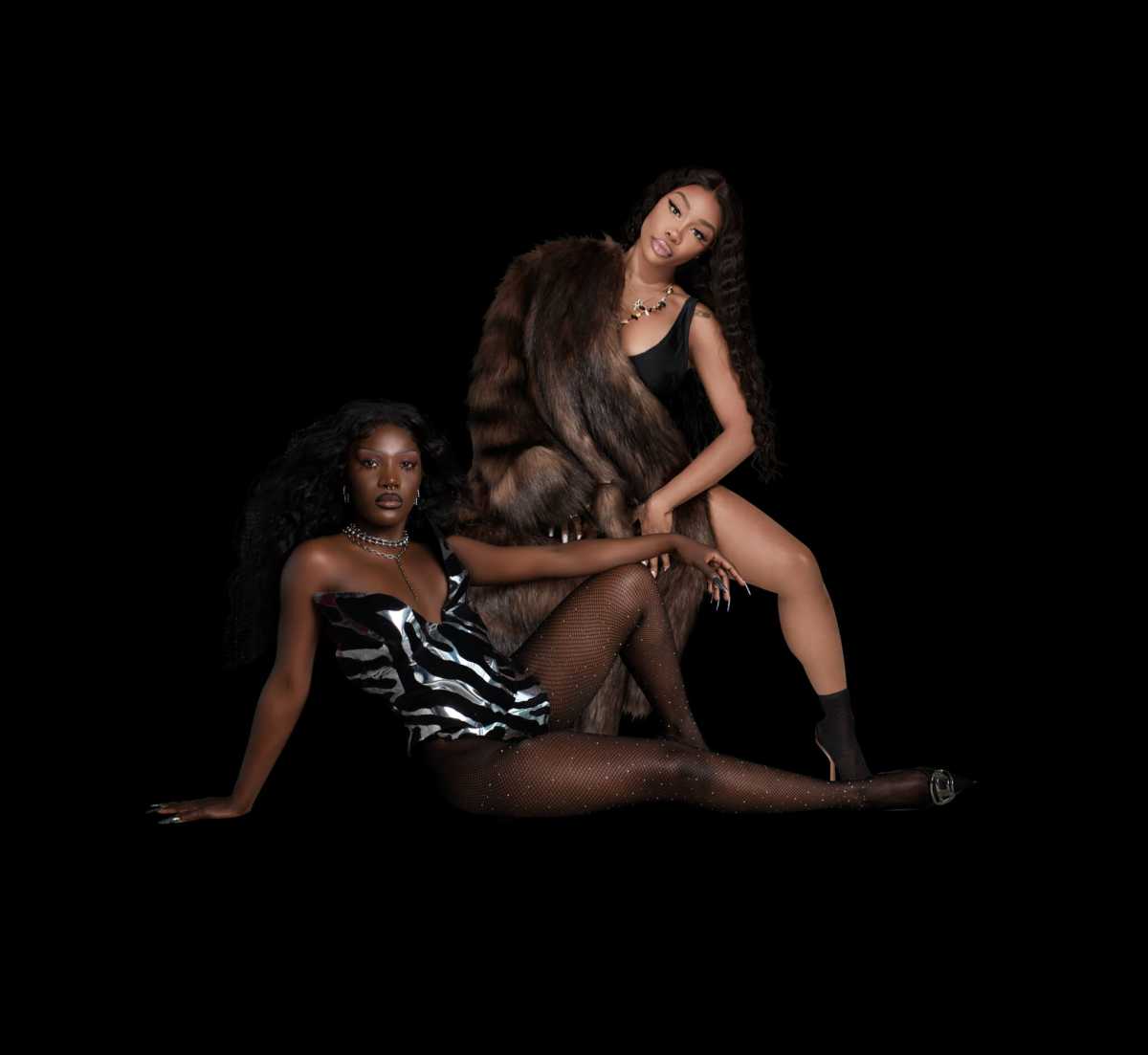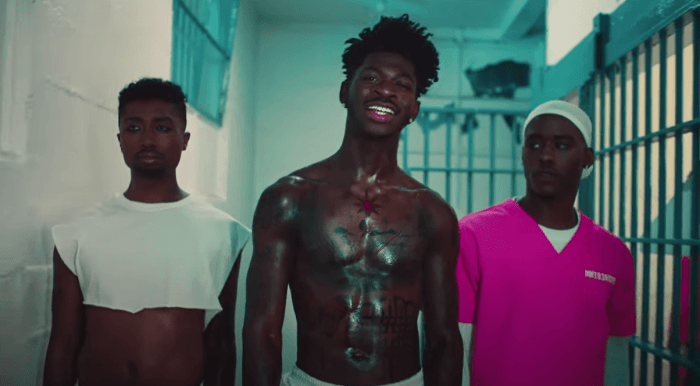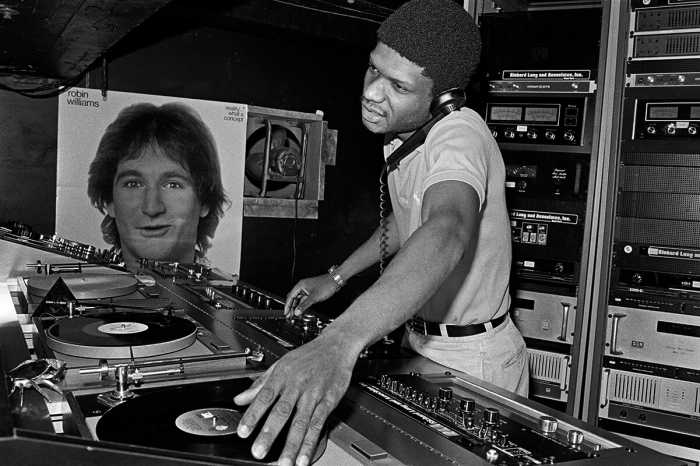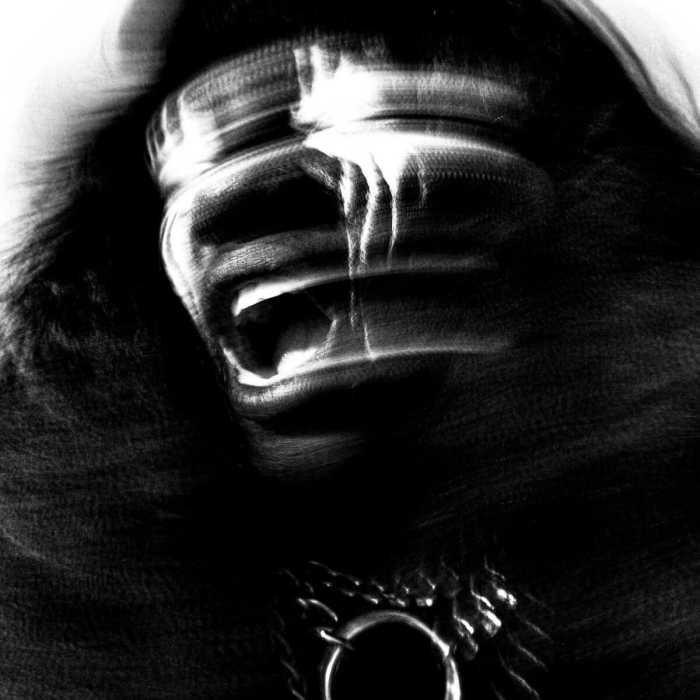This month’s music roundup brings an excursion into 12-step pop punk from Demi Lovato, the major label debut of queer rapper Doechii, and a hyperpop opus from the duo digifae.
Demi Lovato | “Holy Fvck” | Island
Demi Lovato’s new album “Holy Fvck” is loaded with crunching guitars. Since becoming a child star at 10, Lovato has lived in the public eye. Their problems with addiction, mental health and eating disorders have become the main subject of their music, as well as several documentaries released to accompany their last few albums. In 2017, they announced their relapse with the bleak ballad “Sober.” Its cry for help was followed by a near-fatal fentanyl overdose a month later. Since then, they’ve shared extremely intimate details of their life with the public. The music video for “Dancing with the Devil,” which restages their overdose and subsequent rape by their dealer, left a bad taste by turning addiction into a marketing device for the song. On their last album, they declared themselves “California Sober,” meaning that they still used marijuana, and decided a few months later that they needed to be completely sober. Lovato’s willing to air out such decisions for a huge audience can make for a harrowing brand of pop.
The blunt tone of “Holy Fvck” — taking the title’s lead, the lyrics are full of four-letter words — suits its subject matter. “Real punk” gatekeepers would laugh at this album even if ‘80s hardcore legends Minor Threat reunited to serve as Lovato’s backing band, but they use the genre to give shape to their struggles. Lovato rages passionately against addiction itself and the difficulties of recovery, singing, “Demi leaves rehab again/When is this s**t gonna end?” on “Skin Of My Teeth.” (They also bring up their gender ambiguity on that song.) Even the songs which don’t directly describe it use it as metaphor, like the love song “Wasted.” “29” angrily addresses her grooming into an exploitative relationship by actor Wilder Vilderamma, whom she dated while underage.
Although Lovato’s first two albums drew on rock music, “Holy Fvck” suffers from the fact that they sound like a novice to the genre. The slick, compressed production was made for cheap earbuds. Their vocals aren’t well suited for punk, relying too heavily on strained demonstrations of their range. But despite its flaws, “Holy Fvck” matches the passion of earlier Lovato songs like “Skyscraper” and “Sober” with much different sonics. Instead of offering platitudes about empowerment, the album gazes into the void of a chronic disease that almost killed Lovato and lays out the temptations of her current life. (“Sure I’m sober now and everybody’s proud/But I miss my vices…I was your poster child, and it was working for a while, but it didn’t fill the void” is heartbreakingly honest.) Its hooks make the underlying darkness stand out even more.
Doechii | “she/her/black bitch” | TDE/Capitol
Doechii’s breakthrough “Yucky Blucky Fruitcake,” which blew up on TikTok last year, is quite an introduction. She performs each verse with a different flow — including slow, precise enunciation and a faster, higher-pitched tone influenced by Nicki Minaj. She shows off a sense of humor (especially in the music video) and raps “I am a Black girl who beat the statistics” (as well as “I think I like girls, but I think I like men.”) The title of her major label debut, “she/her/black bitch,” promises to expand on that line’s politics.
However, the five-song, 13-minute ep is deliberately minor. While it’s a pleasurable listen, only its opening and closing tracks (“Swamp Bitches” and “Persuasive,” respectively) feel fully formed. She showcases her ability to sound like several vocalists on the same song, alternating between rapping and singing, but her lyrics are vague and disappointingly impersonal. “Swamp Bitches” offers up punk attitude with high-velocity rapping from both Doechii and Rico Nasty, replacing an ominous sample of bluesy guitar with a beat switch into trap percussion and thunderous 808s. “Persuasive” is a stoner’s anthem about finding solace in marijuana, contrasting labelmate SZA’s earthy voice with Doechii’s breathier style. Although there’s nothing particularly wrong with “she/her/black bitch,” it sands down her edges in favor of pop appeal. The personal details from her earlier music, like being equally afraid of her mother walking in on her masturbating and listening to Paramore, are missing. She’s not bad at this mix of styles, but “Persuasive” is the only real earworm.
Digifae | s/t | Orange Milk Records
Just as digifae’s name mashes up the worlds of technology and magic (“fae” being short for “fairy”), the duo’s music brings together melody and noise. Comprising of lead singer/producer diana starshine and queer, non-binary producer galen tipton (also a solo artist under the name recovery girl), digifae covers familiar ground much of the time, but they have a real knack for taking their songs in unexpected directions.
The influences and contours of hyperpop are well-established by now. Music which would’ve sounded innovative in 2018 can come across like genre exercises. The glitchier digifae gets, the more it fall under the shadow of other artists. Its arsenal of metallic percussion and pitch-shifted vocals, used for staccato rhythm, and penchant for underlining the poppiest passages with crashing distortion, can get tired. But digifae has a real gift both for melody and unexpected structures. In “lava,” there are extremely femme vocals, with starshine singing, “I’m scared that I might get in too deep” over an attractive tune played on a toy xylophone and field recordings of running water. The song then abandons the voice altogether for sections overtaken by static and synthesizers, then churchly organ. Without stinting on melody, digifae’s songwriting develops in dramatic directions rather than repeating itself, with an overall care for structure and progression. Digifae’s best songs make it impossible to pry prettiness and noise apart. “Flowers” speeds up its melody into the electronic equivalent of a guitar shredding, while starshine scrapes her throat into a cookie monster growl. “Better” uses a stop-and-start beat that gathers steam during the chorus. As hyperpop production frequently does, the effects used on starshine’s vocals, combined with her lyrics about heartbreak, hint at something provocative about gender; they help her sound exaggeratedly feminine, pointing out the effort that goes into such constructs.





































